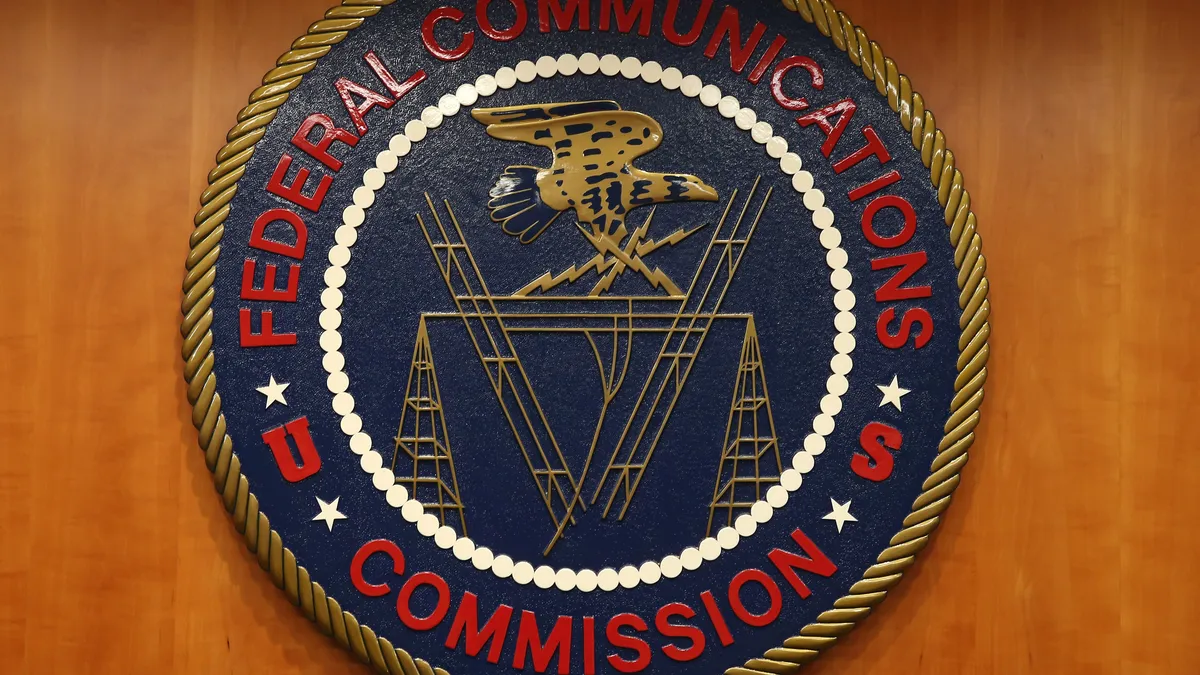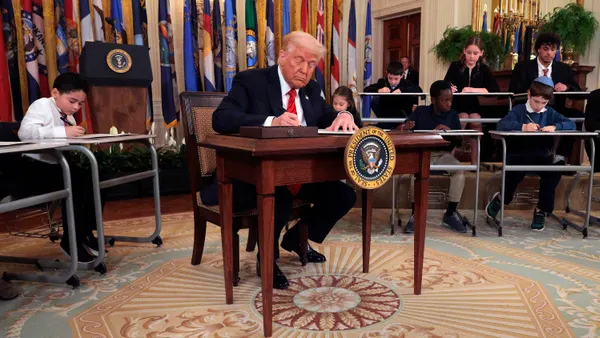Dive Brief:
- The Federal Communications Commission, by a 3-2 vote on Thursday, approved an expansion of the E-rate program to support Wi-Fi on school buses.
- Federal support for school bus Wi-Fi will help address inequities for students who lack internet access at home, particularly those who live in rural, tribal or high-poverty neighborhoods, according to the commissioners who supported the measure.
- The two who voted against it cited concerns over limited evidence showing that the expansion would support students’ academic success. They also said expanding E-rate to include school bus connectivity might be illegal since the law establishing the program funds connectivity for classrooms and libraries.
Insight:
FCC Chairwoman Jessica Rosenworcel said during Thursday’s FCC meeting that using E-rate funds for school bus Wi-Fi will help close the “homework gap” caused by some students lacking connections to broadband internet at home.
“Today we make clear that schools can use E-rate funds to outfit school buses with Wi-Fi,” Rosenworcel said. “This is smart, creative and consistent with the statute.”
Rosenworcel pointed to Section 254 of the Communications Act, which gives the FCC authority to use E-rate funds for “additional services for educational purposes.” She added that during President George Bush’s administration more than two decades ago, the FCC made a similar decision on E-rate, when the commission approved the use of cell phones and mobile wireless services for buses.
“We are just updating it to meet this moment,” Rosenworcel said.
The Emergency Connectivity Fund, stemming from COVID-19 relief dollars, initially provided federal aid to help schools expand internet access to students during the pandemic. So far, $58.2 million has been used to help buy hotspots and broadband services for school buses. Those funds, however, will expire June 30, 2024.
Based on the FCC’s experience funding school bus Wi-Fi through the Emergency Connectivity Fund, costs average $1,840 per bus per year, according to an FCC fact sheet. The fact sheet noted that the FCC will be “mindful of our obligation to be prudent stewards of the limited E-Rate funding.”
Before the FCC made its decision, Sen. Ted Cruz, R-Texas, and Rep. Cathy McMorris Rodgers, R-Wash., had urged newly sworn-in FCC Commissioner Anna Gomez to oppose the plan. The lawmakers argued it is unlawful and will also subsidize “children’s unsupervised internet access to social media sites like TikTok and Instagram on their bus rides to and from school.”
But 66% of schools and libraries said they support efforts to make school bus Wi-Fi eligible for E-rate funds, according to a June survey of the program’s participants by Funds For Learning.
AASA, The School Superintendents Association, also issued a joint statement with several rural education organizations expressing support for school bus Wi-Fi ahead of the FCC’s final vote on Thursday.
“This proposal turns normal driving time into connected and learning time, a critical opportunity in our rural communities where students are disproportionately likely NOT to have access at home," the groups said. "Wi-Fi on Wheels allows children without internet access at home to do their homework and this proposal is a critical step in leveling the educational playing field.”














